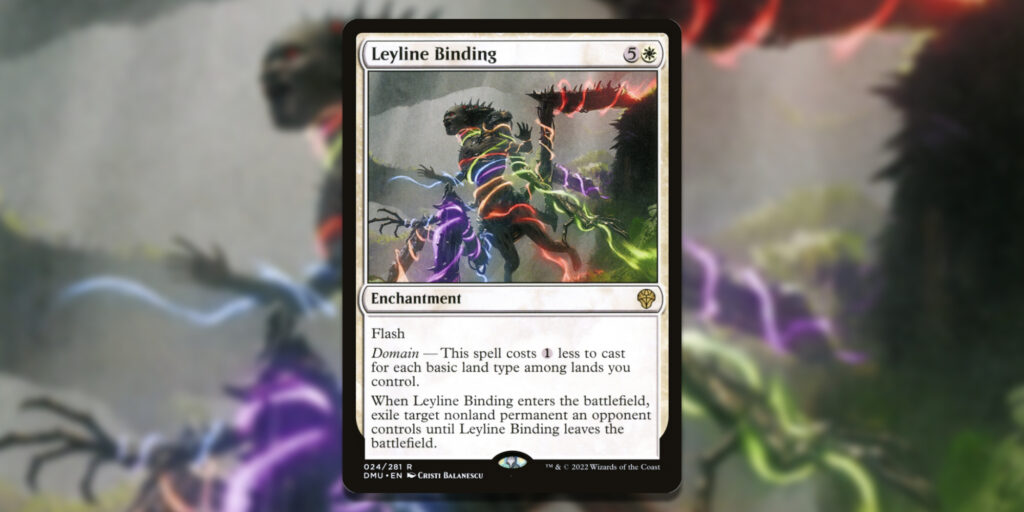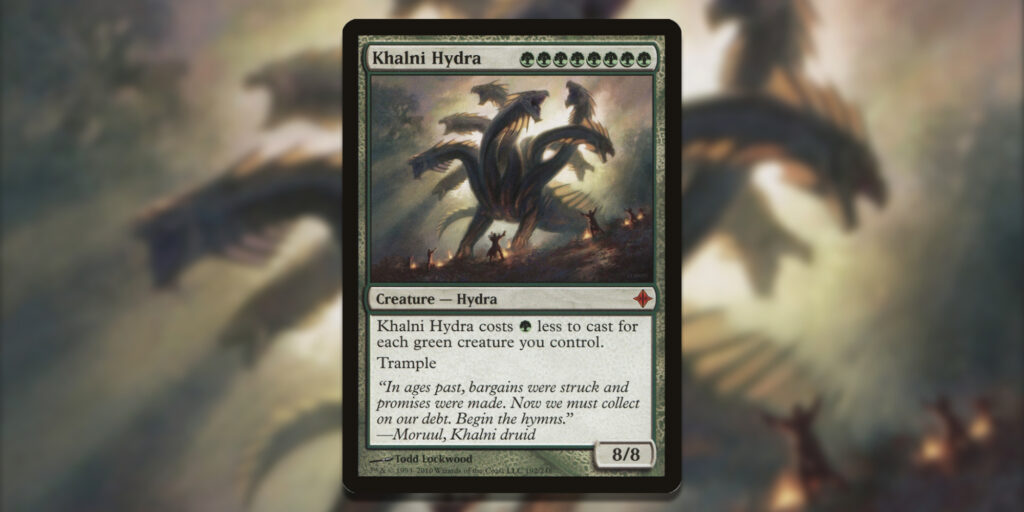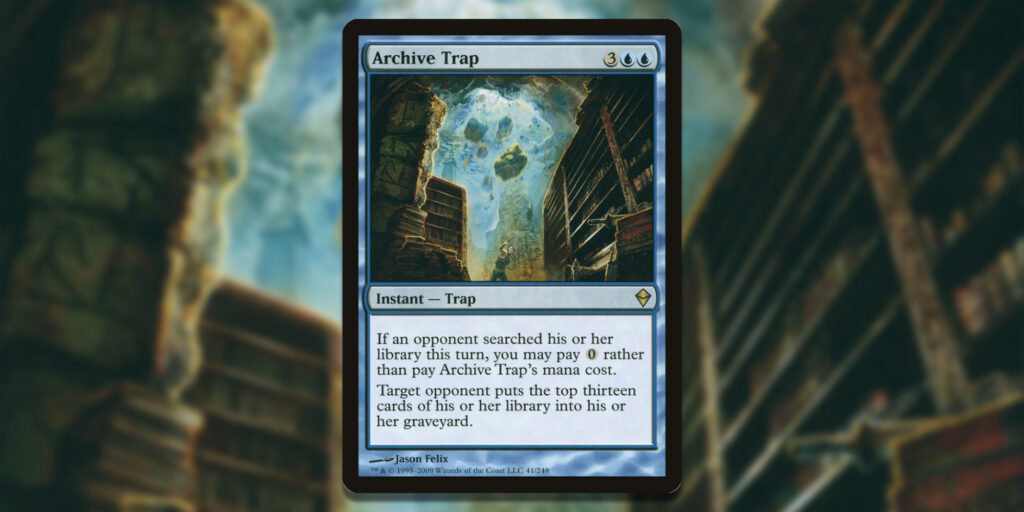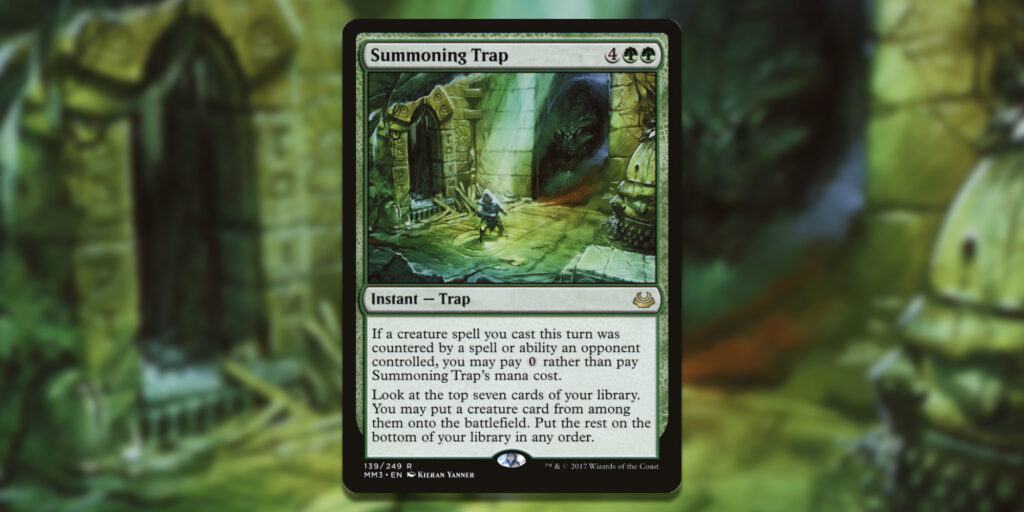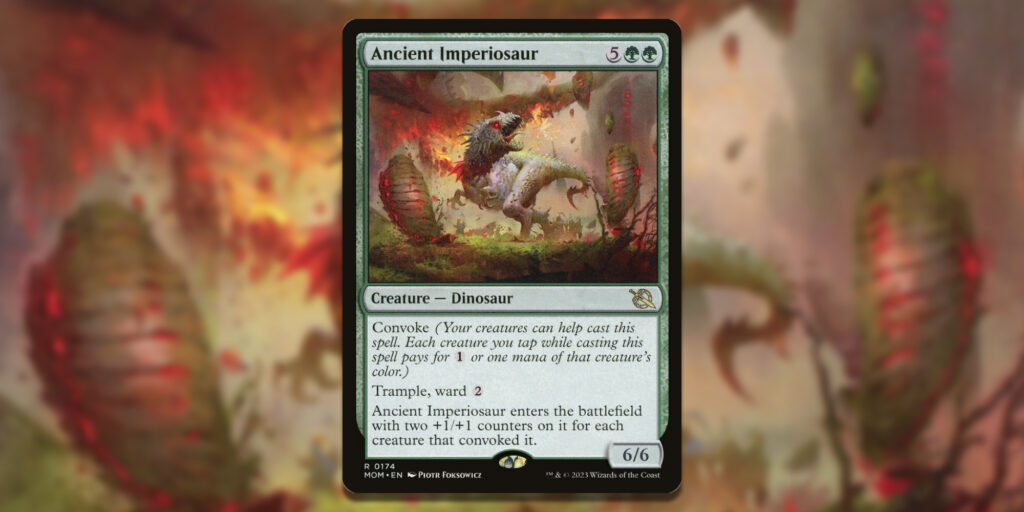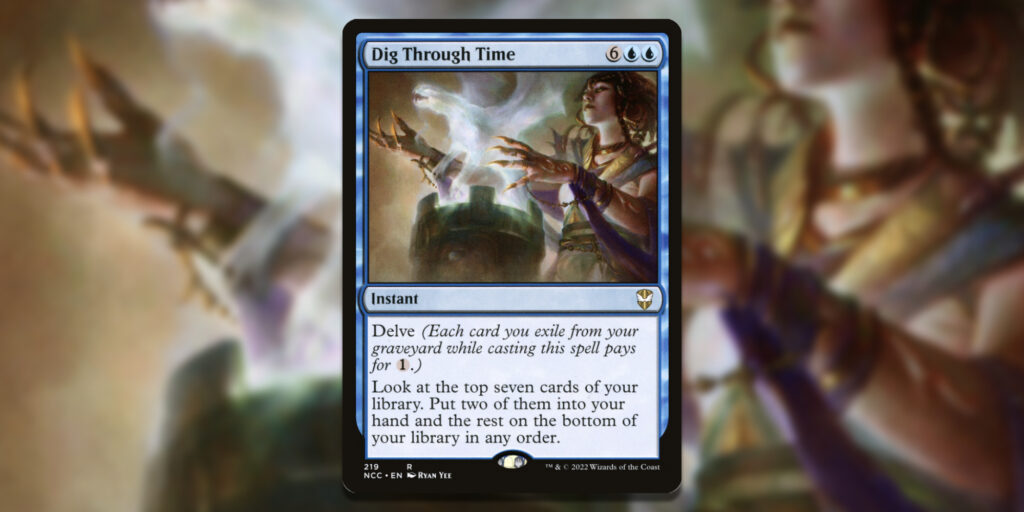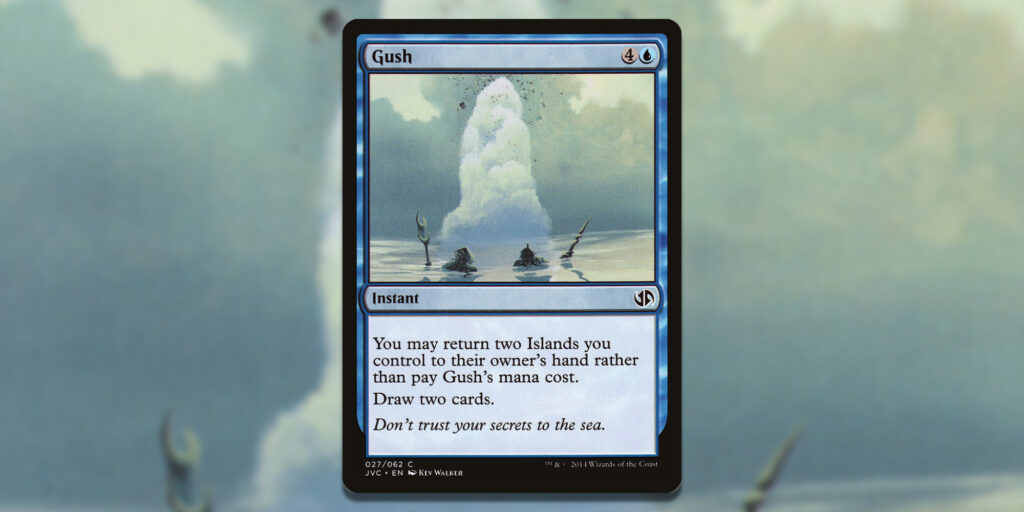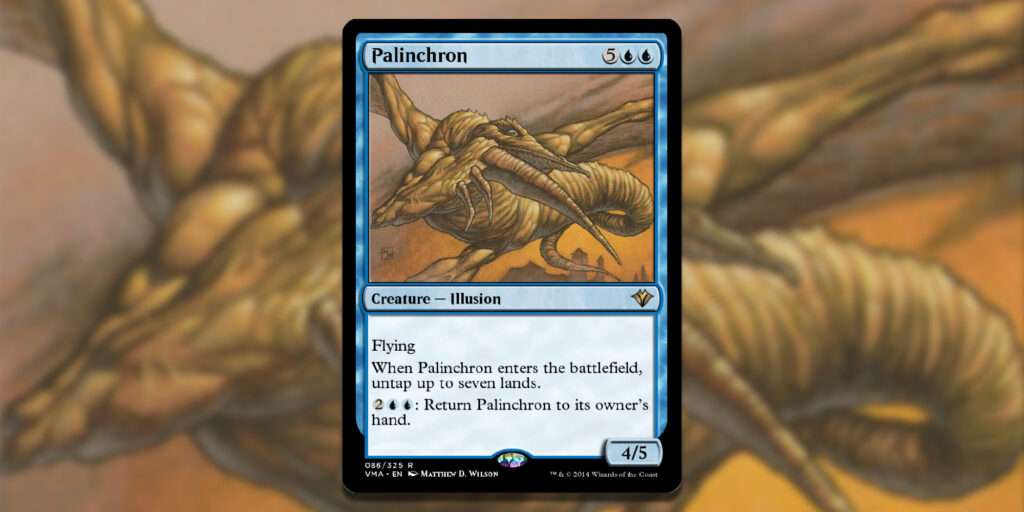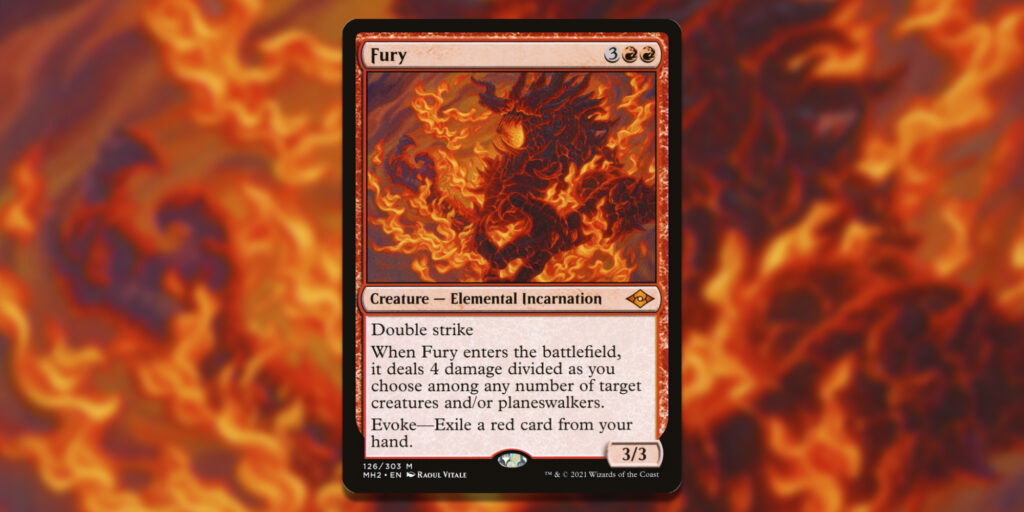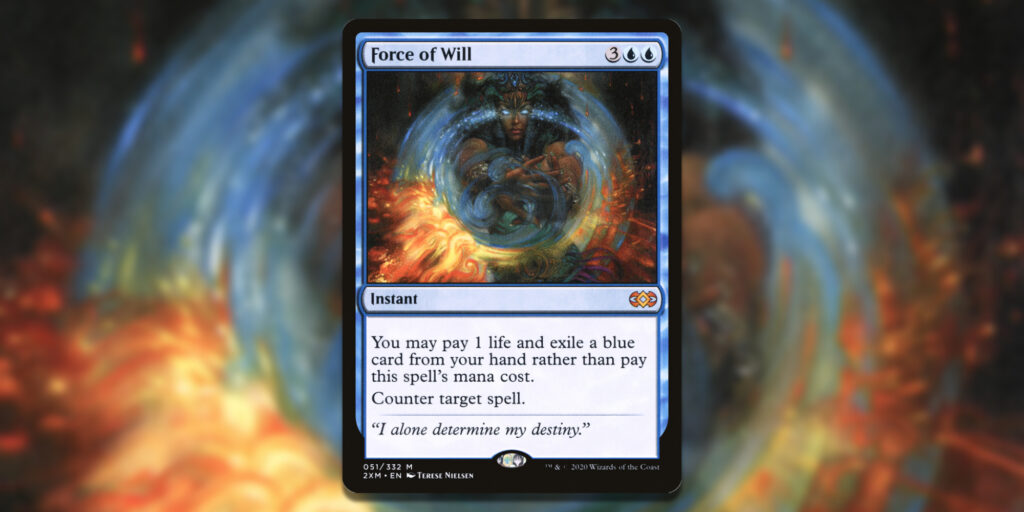There’s been a lot of talk about beans in Magic since the release of Wilds of Eldraine and it’s all focused on one little uncommon, Up the Beanstalk. This unassuming two-drop enchantment has some fantastic synergies with some of the most popular cards across a few different formats, helping to catapult it to the top of plenty of players’ radars.
Up the Beanstalk does two simple things, it draws you a card when it enters the battlefield, and then draws you more every time you cast a spell with a mana value of five or more. Extremely straightforward right? Turns out, there are tons of spells that players can cast for zero or close to zero mana that normally cost five or more mana, turning them all into cantrips. Let’s take a look at some of the best cards to work with the little stalk that could.
Leyline Binding
Sure, Leyline Binding requires you to play a five-color deck, or at least makes you bend your mana base a bit to support it, but the payoff is amazing. In Standard, you can play Leyline Binding as early as turn two with the right tri-lands, but more likely you’ll be casting it on turn three or four so you can play it with Up the Beanstalk out.
Since the mana value of Leyline Binding is still six, despite the fact you’re only paying one or two mana for it, you get to draw a card. And realistically, not many players are running enchantment removal in competitive formats, making it a safe way to permanently remove most threats.
Khalni Hydra
Khalni Hydra isn’t so much good as it is funny, and more importantly, free. Sitting at a staggering eight green mana, Khalni Hydra seems restricted to mono-green Commander decks, and it still might be, but more importantly, this eight-mana card can be cast for zero mana with enough green creatures in play.
This 8/8 with trample costs one green mana less for each green creature you control, and in a deck filled with massive bombs and tons of ramp, you can force your opponents to have to deal with this massive creature while keeping your hand filled.
Archive Trap
Inevitably, in pretty much every Commander game, one of your opponents is going to search their library for something. Maybe they cracked a fetch land, or are grabbing some combo piece. That’s when you hit them with the Archive Trap.
This five-mana mill spell can be cost for zero mana if one of your opponents searched through their library for any reason. You then get to mill thirteen cards from any opponent’s deck, not just the one who searched their library, which can be very silly.
Summoning Trap
Another trap but this time it’s a little more situational, Summoning Trap is a six-mana spell that can be cast for free if you’ve had a creature spell countered this turn. When you cast Summoning Trap you get to look at the top seven cards of your deck, taking a creature card from them and putting it directly into play.
You can bait out a counterspell from your opponents by playing a problematic creature, something like a Dockside Extortionist or Orcish Bowmasters, only to snap up something much larger like an Etali, Primal Conqueror or Blightsteel Colossus. You don’t get to cast the second creature spell, so it won’t trigger Up the Beanstalk again, but casting the Trap does let you draw a card, helping you play more spells later.
Ancient Imperiosaur
Big dumb creatures are always fun to cast in Magic, and Ancient Imperisaur is a big smart creature that does a ton of work to put pressure on your opponents. Normally casting seven mana, Ancient Imperisaur has convoke, letting you tap creatures to reduce the Imperisaur’s mana cost by one generic or one mana from that creature’s color.
In exchange, you get a massive 6/6 with trample and ward 2 Dinosaur who gains two +1/+1 counters for each creature you convoke it with. If you paid the entire cost with creatures, you end up with a 20/20 trampler that is hard to remove, and it replaces itself when you cast it since its mana value never chances, just like with Leyline Binding.
Dig Through Time
A fantastic card no matter the format (except for the ones it’s banned in), Dig Through Time is oftentimes a two-mana spell, down from the eight it normally costs thanks to its delve ability. When it resolves, you get to look at the top seven cards of your deck and add two of them to your hand, which is some incredibly powerful card advantage.
When you cast Dig Through Time with Up the Beanstalk out, it’s important to note that you will draw a card from Beanstalk’s trigger first, then you get to resolve Dig Through Time. You’re then getting three cards off of Dig Through Time, you just don’t get to control the selection of one of them.
Gush
Sitting at the peak of Magic card design is Gush, an instant speed spell which lets you draw two cards for a normally too-expensive five mana. At the cost, you might as well play a Divination instead, right? What makes Gush so good is you can circumnavigate the cost by bouncing two Islands back to your hand rather than paying Gush’s cost.
Now effectively free, Gush becomes a fantastic way to stay ahead of your opponents in terms of card advantage, and with Up the Beanstalk out, you get to draw three cards instead. Just be careful you won’t have to discard cards at the end of your turn since you’re putting up to five cards back into your hand between the two Islands you bounced and three cards you drew.
Palinchron
One of the wildest combo cards ever printed, Palinchron is practically a free spell since it untapped seven lands when it comes into play. If you have any lands that tap for more than one mana, like Nykthos, Shrine to Nyx, you can generate an absurd amount of mana. Even better, Palinchron comes with a built-in ability to bounce it back to your hand just by paying four mana.
Combined with Up the Beanstalk, you get to draw a card each time you cast it, providing you with an engine to draw your entire deck if you want. This two-card engine provides an incredible amount of value, and if your opponents don’t have an immediate answer, you can dig through your deck until you find the protection you need to stop any incoming spells.
Fury
Taking over Modern is the synergy between Up the Beanstalk and Evoke decks. These decks take the Evoke Elemental cycle from Modern Horizons 2 and keep them in play around their evoke costs by saving them from death with cards like Undying Malice and Malakir Rebirth while also triggering their enter the battlefield abilities again.
Fury and Solitude are the only two cards from this cycle that will trigger Up the Beanstalk, but in doing so they effectively negate the evoke cost of exiling a card from your hand. Being able to keep your hand full lets you stay a step ahead of your opponents and gives you the potential to evoke even more Elementals.
Force of Will
It should come as no surprise that one of the best control cards in the game, which also has an alternate casting cost that lets you cast it for free, would find itself pairing well with Up the Beanstalk. Much like the Evoke Elementals, Force of Will lets you cast it for free by exiling a blue card from your hand with the added cost of paying one life, though the life lost is negligible.
The best part about Force of Will is that you can cast Up the Beanstalk on your turn two, seemingly tapping out, and still be able to counter anything your opponent plays thanks to Force of Will’s alternate casting cost, and drawing a card in the process. While you’re still going down a card in your hand, it helps take some of the sting out.
Ryan Hay (he/him) has been writing about Magic: The Gathering and video games for years, and loves absolutely terrible games. Send him your bad game takes over on Twitter where he won’t stop talking about Lord of the Rings.

